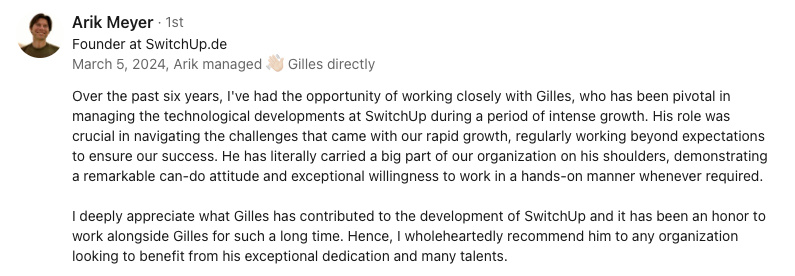Abstract:
The rise of co-working spaces and digital nomadism marks a significant shift in the way we conceive of and engage with work environments. Fueled by advances in technology and changing attitudes towards work-life balance, a growing number of professionals are rejecting the traditional office setup in favor of more flexible, location-independent work arrangements. Co-working spaces offer these individuals and teams the opportunity to work in a structured environment that fosters community, collaboration, and innovation, without the constraints of a fixed location. This evolution reflects broader trends in the future of work, where flexibility, digital connectivity, and autonomy are increasingly valued. As more organizations and individuals adopt remote work practices, the demand for co-working spaces is expected to surge, signifying a transformative period in how work is performed, valued, and conceptualized.
Have You Ever Found Yourself Working from a Beachside Café?
Picture this: It's a Tuesday morning, and instead of the usual rushed commute to an office building, you're leisurely sipping your favorite coffee on a sun-drenched terrace, laptop open, waves crashing in the background. Sounds like a dream, right? Well, welcome to the present, where the traditional 9-to-5 office routine is swiftly becoming a relic of the past, making way for something far more flexible and, let's face it, exciting. The shift in work environments is not just about choosing pajamas over pantsuits but represents a profound transformation in how and where we work.
The Dawn of a New Work Era
The cubicles and closed-door offices that once symbolized professional success are now giving way to digital nomadism, fueled by advancements in technology and a growing emphasis on work-life harmony. This isn't just a trend among Silicon Valley startups or freelance graphic designers; it's a global movement that's reshaping the very fabric of the workforce. As high-speed internet becomes ubiquitous and collaboration tools more sophisticated, the world is our office, and the only question is, "Where to next?"
But let's take a moment to rewind and see how we got here. The evolution of work environments is as much about technology as it is about culture. It began with the industrial revolution, took a significant turn with the advent of personal computing, and has now reached a point where cloud computing, AI, and 5G networks are not just buzzwords but the enablers of our work-anywhere ethos. Add to this mix a growing disenchantment with the hustle culture and an emphasis on mental health and well-being, and you have the perfect recipe for the rise of digital nomadism and co-working spaces.
The Purpose of Our Exploration
This article sets out to explore the significance of this seismic shift towards more flexible, location-independent work arrangements. It's a phenomenon that's not only changing the way we work but also where we choose to live, how we connect with others, and what we value most in our careers. From the rise of co-working spaces to the technologies that make remote work not just possible but productive, we're witnessing a work revolution that promises to reshape our lives in profound ways.
So, as we venture into the details of this transformation, keep that beachside café in mind. Because, who knows, it might just be your next office. Now, wouldn't that be something?
The Role and Rise of Co-working Spaces in the New Work Era
What’s the Deal with Co-working Spaces?
If you thought co-working spaces were just glorified coffee shops with fewer espresso machines and more power outlets, think again. At their core, co-working spaces are the Swiss Army knives of the modern professional's toolkit. Designed to serve the needs of a diverse workforce, from freelancers to startup teams, these spaces are more than just a desk or Wi-Fi connection. They're bustling hubs of creativity, networking, and productivity, wrapped up in an Instagram-worthy package.
Imagine stepping into an environment where the air is electric with innovation, and every corner is a potential collaboration waiting to happen. The beauty of these spaces lies in their ability to morph right along with the needs of their tenants, offering a smorgasbord of amenities like private meeting rooms, brainstorming lounges, and even nap pods for when the brainstorming gets too intense. It’s like having an office that’s tailored to your whims, minus the dreary leases and stale coffee.
A Phenomenon on the Rise
Gone are the days when co-working was the secret handshake of the freelancer community. The numbers speak volumes, with a report from Statista implying that the global number of co-working spaces is projected to cross 40,000 by 2024, a testament to their magnetic appeal. But it's not just the quantity that’s impressive—it’s the variety. From cozy nooks perfect for writers to expansive, tech-driven complexes for startups, co-working spaces are redefining the concept of the workplace one membership at a time.
Case studies from around the globe illustrate this growth vividly. In bustling urban centers and sleepy suburbs alike, co-working spaces have become the go-to solution for professionals seeking flexibility without sacrificing community. Interviews with co-working space founders reveal a common theme: a mission to provide a canvas for professionals to paint their success, fostering environments that are as about networking and collaboration as they are about getting down to business.
The Secret Sauce: Community and Purpose
At first glance, the ascendancy of co-working spaces in an era of unparalleled digital connectivity might seem paradoxical. After all, if you can work from anywhere, why pay for a desk somewhere? The answer is as simple as it is profound: we are social animals by nature, craving interaction and a sense of belonging. Co-working spaces offer a remedy to the isolation that can creep in when the line between "home" and "office" gets too blurred.
It’s this psychological nuance that sets co-working spaces apart. They’re not just venues for work; they’re petri dishes for community building, where the serendipity of spontaneous conversations can lead to new ventures, or at least to some memorable coffee breaks. The emphasis on creating a shared sense of purpose is palpable, letting members feel part of something larger than their to-do list.
Moreover, these spaces lay out a smorgasbord of opportunities for networking and professional development. Regular workshops, talks by industry leaders, and pitch nights are just a few examples of how co-working spaces double down as accelerators for growth and learning. The message is clear: come for the desk, stay for the community.
Navigating the Future of Work
As we meander through the bends and curves of work's future, co-working spaces stand as beacons of flexibility and creativity. They encapsulate the shift toward a work culture that values mobility, autonomy, and the inherent human need for connection. For those of us who believe that the best work happens when you're not chained to a desk or a particular location, co-working spaces offer a refreshing counter-narrative.
They remind us that while work is an integral part of our lives, it doesn’t have to take over. In offering a middle ground between the isolation of remote work and the rigidity of traditional office settings, co-working spaces champion a more balanced approach to professionalism. Whether it’s a shared studio or a hot desk overlooking the city skyline, these spaces are rewriting the rules of how and where great work happens.
So, if you find yourself yearning for the camaraderie of an office without giving up the freedom to work in your slippers (or from that beachside café), co-working might just be your cup of tea. And with the rapid innovation and expansion in this sector, who knows? The future office could be anywhere and everywhere, simultaneously. Here's to working anywhere, together, in spaces that inspire as much as they facilitate.
The Future of Work: Trends and Predictions
As we gaze into the crystal ball of the workplace, it's evident that the constellations are aligning in favor of a more autonomous, digitally interconnected way of working. The shift towards flexible work locations, underscored by the burgeoning role of co-working spaces, is not a fleeting trend but a robust movement towards a new paradigm in professional life. Let’s explore the forces propelling this shift and the implications it holds for our work future.
The Digital Connectivity Wave
The backbone of this revolutionary work model is, without a doubt, the advancements in digital technology. The world is more connected than ever, shrinking distances and dissolving traditional barriers to communication and collaboration. Technologies such as cloud computing, AI, and blockchain are not just technological marvels but vital tools enabling us to work from virtually anywhere—with efficiency and ease that rival, if not surpass, traditional office setups.
As digital connectivity deepens, our work habits and preferences evolve in tandem. The appetite for autonomy and flexibility in our work lives has never been more palpable. It's not just about avoiding the morning commute or having the freedom to work in pajamas; it's about crafting a work-life blend that prioritizes well-being, productivity, and personal fulfillment.
Co-working Spaces: The New Professional Sanctuaries
In tandem with this digital evolution, co-working spaces emerge as pivotal players in the narrative of future work. They encapsulate the best of both worlds: the autonomy of remote work and the collaborative spirit of traditional office environments. Far from being just stop-gaps for freelancers or small startups, these spaces are becoming the de facto hubs of innovation and networking for all kinds of professionals. Here’s why they're becoming indispensable:
- Flexibility: The inherent adaptability of co-working spaces regarding location, amenities, and lease terms caters perfectly to the modern professional's craving for flexibility.
- Technology Integration: These spaces often offer state-of-the-art technological resources, making the transition from a corporate office to a co-working environment seamless and even advantageous.
- Community and Networking: The communal spirit of co-working spaces fosters networking, collaboration, and even mentorship opportunities that are harder to find in isolated work settings.
In the symbiotic relationship between digital connectivity and co-working spaces, we witness the anatomy of the future workplace—one that is flexible, connected, and community-oriented.
Mapping the Road Ahead
The trajectory toward remote practices, facilitated by digital tools and co-working environments, is gaining momentum. This trend isn't driven solely by workers' preferences for a more balanced and fulfilling professional life but is also recognized by organizations for its productivity benefits. Companies are beginning to understand that happy, autonomous employees—empowered to work in ways and places that suit them best—are often the most innovative and productive.
As this understanding deepens, we’re likely to see a continued upsurge in remote work policies and an expansion in the co-working sector, with spaces evolving to meet the diverse needs of an increasingly mobile workforce. Whether it’s satellite offices, industry-specific hubs, or networks of global workspaces, the future of work is decidedly location-agnostic.
But as we chart this exciting trajectory, it's crucial to remember that the journey toward the future of work is not about technology per se but about people—how we connect, collaborate, and create value together. Co-working spaces, with their emphasis on community and flexibility, offer a blueprint for a work culture that isn’t tethered to desks or dictated by commutes but is defined by freedom, purpose, and connectivity.
So, as we stand on the brink of this transformative era, one can’t help but ponder: Will the office of the future be a place we go, or a space we choose, based on when, how, and with whom we work best? Only time will tell, but one thing is for certain—the future of work promises to be as dynamic as it is liberating.
You might be interested by these articles:
- Navigating the Surge of Co-Working & Nomadic Work
- Co-working Spaces: A Startup's Secret to Compliance and Growth
- Embracing Flexibility: The Future of Workspaces and Leadership





